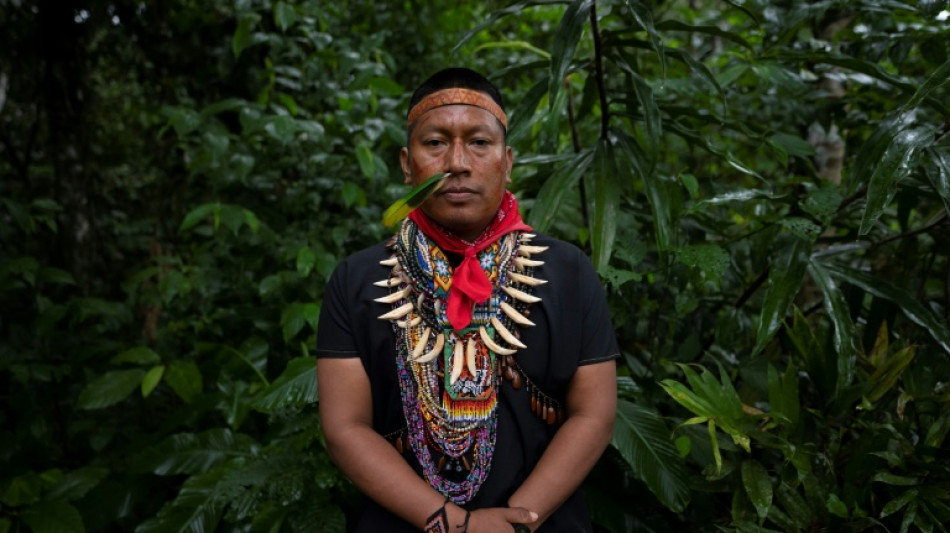Ecuadoran activist Alex Lucitante has never shied away from the fight against land-grabbing miners and armed groups in his restive part of the Amazon jungle bordering Colombia.
Later this month, he will take his battle to world leaders at the United Nations, as one of several Indigenous representatives to the COP16 biodiversity conference in the Colombian city of Cali.
"It’s an opportunity (for Indigenous people) to be stronger in the world," he told AFP by telephone ahead of the meeting, which organizers say will attract more than 100 government ministers and 12 heads of state.
"We are in a very critical situation."
Lucitante, the 31-year-old son of a shaman, is of the Cofan Avie ethnic group.
He has spearheaded his community's fight against illegal gold miners, notably setting up an Indigenous guard, patrols and a drone surveillance system.
At the same time, he has fought in court.
In 2018, the Cofan Avie won an historic legal victory over mining companies in Ecuador, where courts annulled 52 gold mining concessions that had been awarded without any consultation with the community.
In 2022, Lucitante and fellow activist Alexandra Narvaez were awarded the Goldman Prize, the equivalent of a Nobel for environmentalists, for their activism.
But all their efforts have not stopped gold prospectors churning up the river beds for gold.
Lucitante blames governments for not doing enough.
"Often, the aid designated for care of the environment, of biodiversity, stays in the cities and never reaches our communities," he told AFP.
And states, he charged, "are the first to promote the destruction of biodiversity... putting out oil tenders and mining concessions while, at the same time, persecuting Indigenous leaders."
- Harmony with nature -
COP16's organizers have said Indigenous peoples will have an active part in the talks, set to run from October 20 to November 1.
"Indigenous peoples and local communities in Colombia and around the world have lived in harmony with nature for millennia," says a statement on the conference website.
"Their traditional knowledge holds important lessons that the world must heed as we collectively seek viable ways to reconcile socioeconomic progress with the health of the natural foundation that sustains all life on Earth."
Lucitante is skeptical.
"The governments participating in these spaces... they end up saying they are doing a very good job with Indigenous peoples, guaranteeing human rights, guaranteeing the rights of nature."
He added, "In our communities, we don't see that."
The 15 previous UN biodiversity conferences, Lucitante said, have brought "no significant changes."
- Governments doing 'nothing' -
The Cofan Avie comprise about a dozen extended families spread over 55,000 hectares (135,000 acres) of rivers and lush forest straddling Ecuador and Colombia.
The area, which is controlled by the myriad armed groups that also call the jungle home, bears the scars of rampant mineral exploration.
"If you look at a map of our territories, you can see all around the destruction that has been taking place during these last years," Lucitante told AFP.
Not even the strongest warrior can defend against such encroachment, he added.
"We can see mining destroying the edge of our territories... and governments are doing absolutely nothing.
"Already the area where I live has been deforested... You can't find a single river that contains clean water anymore, you can't find a river that contains a healthy fish to feed yourself."
Lucitante said he had received threats for shining a light on illegal activities.
The COP organizers have said Indigenous representatives will have input in national action plans on protecting biodiversity.
Environment Minister Susana Muhamad of host country Colombia has told AFP a priority will be creating a body allowing Indigenous communities to directly access funds for conservation efforts.
The conference's theme: "Peace with Nature."
F.Varghese--BD
